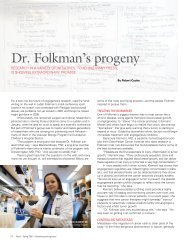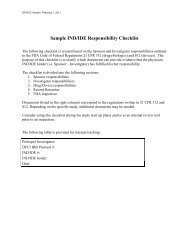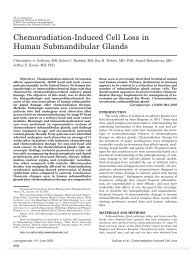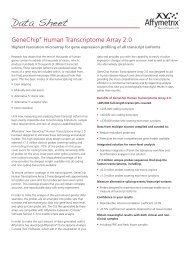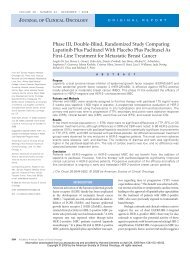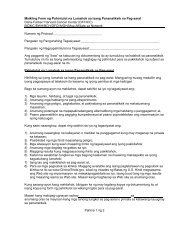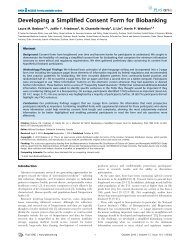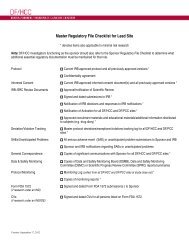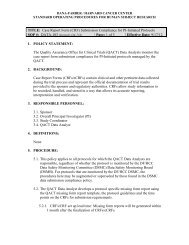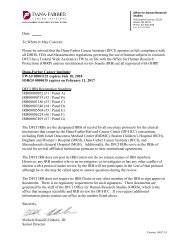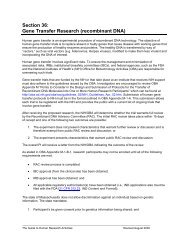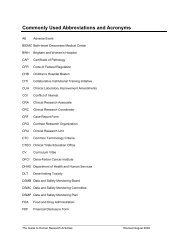Scientific Presentations Summer 2009 - Dana-Farber/Harvard ...
Scientific Presentations Summer 2009 - Dana-Farber/Harvard ...
Scientific Presentations Summer 2009 - Dana-Farber/Harvard ...
You also want an ePaper? Increase the reach of your titles
YUMPU automatically turns print PDFs into web optimized ePapers that Google loves.
Identifying Potential HLA-A*0201-restricted,<br />
Immunogenic Epitopes from Myosin VI<br />
Osamede Obanor<br />
Mentor: Simo Arredouani, PhD<br />
<strong>Scientific</strong> Advisors: Wen Yue, MD; Bin Lu, PhD; and Martin G. Sanda, MD<br />
Beth Israel Deaconess Medical Center<br />
Background: Myosin VI previously found to be overexpressed in prostate tumors<br />
and play a role in tumorigenesis, could potentially be a target for immunotherapy<br />
geared towards prostate cancers. Hypothesis: By analyzing and testing Myosin VI’s<br />
HLA-A2.1 epitopes, novel epitopes will be identified that can elicit a cytotoxic lymphocyte<br />
immune response to prostate tumors. Preliminary data: Comprehensive<br />
in-silico analysis was conducted that identified 57 novel, human prostate cancer-restricted,<br />
tumor-associated antigens (TAA). Fifteen of these TAA, including Myosin<br />
VI, were ascertained as showing prostate cancer-associated expression by Q-RTPCR<br />
of human specimens. Aims & Methods: in-silico analysis using multiple prediction<br />
algorithms was performed in order to identify novel peptides of Myosin VI that bind<br />
to human HLA-A2.1 receptors. Potential binders were then run through an in vitro<br />
HLA-A2.1 stabilization assay to determine whether they bind to the HLA-A2.1 receptor.<br />
HLA-A2.1 transgenic (HHD) mice were injected with the 5 peptides that<br />
showed significant binding, along with a constant helper peptide to test for their<br />
immunogenicity. Spleens were harvested from the immunized mice 12 days later;<br />
splenocytes were prepared and subjected to an ELISPOT testing that determined if<br />
an immune response was elicited. Results: 10 peptides from Myosin VI were chosen<br />
to go through HLA-A2.1 stabilization assay, and 5 of the 10 showed significant binding<br />
to HLA-A2.1 receptors. When the 5 peptides were injected in transgenic mice, 2<br />
showed the ability to elicit an immune response. Conclusions: 2 Myosin VI peptides<br />
were able to bind to HLA-A2.1 receptors and elicit an immune response, making<br />
them potential targets for immunotherapy.



